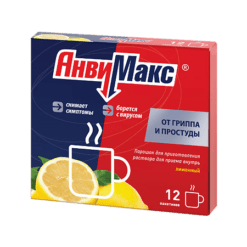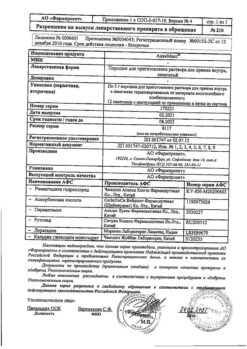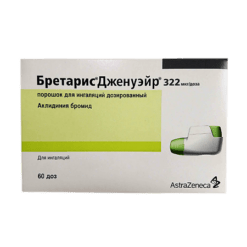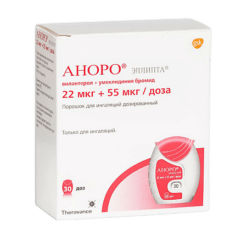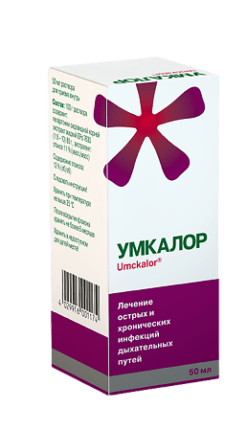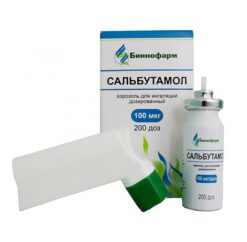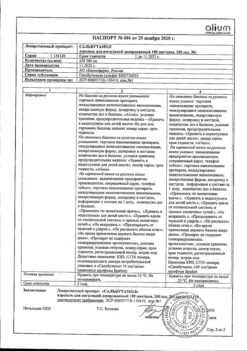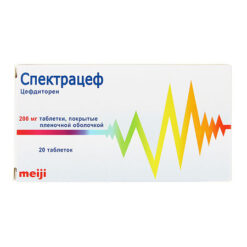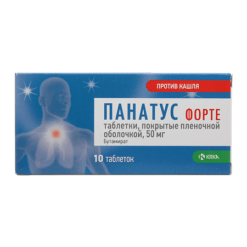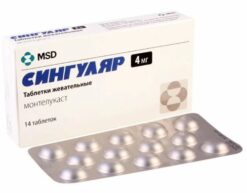No products in the cart.
Ipramol Steri-Neb, 0.2 mg+1 mg/ml 2.5 ml, 20 pcs.
€1.00
Out of stock
(E-mail when Stock is available)
Description
Ipramol Steri Neb is a combined drug with a pronounced bronchodilator effect due to the action of ipratropium bromide and salbutamol.
Ipratropium bromide is an anticholinergic agent. It blocks m-cholinoreceptors of smooth muscles of tracheobronchial tree (mainly large and medium-sized bronchi), suppresses reflex bronchoconstriction, reduces secretion of glands of mucous coat of airways. Having structural similarity with acetylcholine molecule, it is its competitive antagonist. It effectively prevents bronchial constriction resulting from inhalation of cigarette smoke, cold air, various bronchospasmodic agents and eliminates bronchial spasm associated with the influence of vagus nerve.
Salbutamol is a beta2-adrenergic agent that acts on the smooth muscles of the airways, causing it to relax and preventing bronchospasm. Reduces resistance in the airways, increases the vital capacity of the lungs. Prevents release of histamine, leukotrienes, PGD2 and other bioactive substances from mast cells. In the recommended therapeutic doses it has no adverse effect on the cardiovascular system and does not cause an increase in BP. Compared with the drugs of this group, it has positive chrono- and inotropic effects to a lesser extent. It causes dilation of the coronary arteries.
The combined inhalation of ipratropium bromide and salbutamol has a simultaneous local effect on muscarinic and beta2-adrenergic lung receptors, resulting in an increased bronchodilator effect. Systemic absorption by combined inhalation of ipratropium bromide and salbutamol is not increased.
Pharmacokinetics
Ipratropium bromide is rapidly absorbed after inhalation, but systemic bioavailability leaves less than 10% of the dose taken. Binding to plasma proteins (mainly to albumin and glycoprotein) is 9%. 46% of the drug is excreted by the kidneys. T1/2 is about 1.6 h after IV administration. Ipratropium bromide does not penetrate through the BBB.
Salbutamol is quickly and completely absorbed after inhalation. Cmax of salbutamol in plasma is observed after 3 hours. Binding to plasma proteins is 10%. Subject to presystemic metabolism in the liver and intestinal wall. T1/2 leaves 3-7 hours. It is excreted by the kidneys, mainly unchanged (30% of the dose within 24 hours) and as an inactive phenolsulfate metabolite within 72 hours, and with the bile. Salbutamol penetrates through the HEB, creating concentrations equal to about 5% of the plasma concentration.
Indications
Indications
Bronchospastic syndrome in patients with COPD and bronchial asthma.
Active ingredient
Active ingredient
Composition
Composition
Active ingredients: ipratropium bromide monohydrate (in conversion to ipratropium bromide) 0.5 mg; salbutamol sulfate 3 mg;
Harmful substances: sodium chloride, 22.5 mg; hydrochloric acid, to pH 3.5; water for injection, 2.5 ml.
How to take, the dosage
How to take, the dosage
Inhaled using nebulizer inhalers or a system for non-invasive lung ventilation in the mode of positive airway pressure.
Adults, including elderly patients and children over 12 years of age – 1 nebulizer with sterile solution 3-4 times a day as inhalation with a nebulizer.
In children under 12 years of age: there are no data on the use of Ipramol Steri-Neb in children under 12 years of age.
Interaction
Interaction
The co-administration of additional beta2-adrenomimetics, GCS, anticholinergic agents and xanthine derivatives may increase the bronchodilatory effects of Ipramol Steri-Neb on the airways and cause severe side effects.
In concomitant treatment with beta-adrenoblockers, there may be a significant decrease in the effectiveness of the drug.
MAO inhibitors and tricyclic antidepressants may increase the beta-adrenergic effects of salbutamol and lead to a sharp decrease in BP.
Inhalation anesthesia with anesthetics containing halogenated hydrocarbons, such as halothane, trichloroethylene, and enflurane, may exacerbate the adverse effects of beta2-adrenomimetics on the CVD, and therefore requires close monitoring of patients. Alternatively, Ipramol Steri-Neb may be discontinued prior to surgery.
Theophylline and other xanthines increase the likelihood of tachyarrhythmia.
The drug Ipramol Steri-Neb, due to the hypokalemic effect of salbutamol, may increase the effect of CNS stimulants, increase the likelihood of glycoside intoxication, and enhance the cardiotropic effect of thyroid hormones.
Possible increase in heart rate and BP during administration of Ipramol Steri-Neb may cause the need to adjust the dose of hypotensive and antianginal drugs.
Diuretics and GCS increase the hypokalemic effect of salbutamol.
The anticholinergic drugs increase the risk of increased intraocular pressure.
Special Instructions
Special Instructions
In order to avoid overdose, the maximum daily dose should not be exceeded. Patients should be instructed on the proper use of Ipramol Steri-Neb with a nebulizer and warned not to get the solution or aerosol in the eyes.
In patients with bronchial asthma or moderate COPD, symptomatic treatment may be preferable to regular use.
The addition or strengthening of anti-inflammatory therapy to control airway inflammation in patients with bronchial asthma and steroid-dependent forms of COPD should be further analyzed.
The regular use of high doses of beta2-adrenomimetics, including Ipramol Steri-Neb, to control the symptoms of bronchial obstruction may worsen the course of the disease. If bronchial obstruction increases, simply increasing the dose of Ipramol Steri-Neb over an extended period of time is inadvisable and even dangerous.
In order to prevent a life-threatening worsening of the disease course, the patient’s treatment plan and especially the adequacy of anti-inflammatory therapy with GCS drugs should be reviewed. Acute closed-angle glaucoma has rarely occurred when using ipratropium bromide inhalation solution with beta2-adrenomimetics. Pain or discomfort in the eyes, blurred vision, the appearance of a halo characteristic of glaucoma combined with eye redness, edema (from conjunctival to corneal) may be regarded as signs of acute closed angle glaucoma. If these symptoms persist, treatment with myotics in the form of eye drops should be started and a specialist should be seen immediately.
It should be explained to the patient that if acute, rapidly worsening dyspnea or apparent decreased response to the drug should be seen by a physician.
The treatment with beta2-adrenomimetics may lead to severe hypokalemia. Particular caution should be exercised in cases of severe airway obstruction because concomitant treatment with xanthine derivatives, diuretics and GCS may contribute to the occurrence of hypokalemia. Hypokalemia may lead to an increased risk of arrhythmia in patients taking digoxin. In addition, hypoxia may exacerbate the effects of hypokalemia on heart rate. In such situations, it is recommended that serum potassium concentrations be checked.
In patients with cystic fibrosis, Ipramol Steri-Neb should be prescribed with caution due to the possible occurrence of symptoms of GI motility disorders. Such patients should be warned about the need to inform the physician about any changes in gastrointestinal function.
If greater doses than recommended are needed to relieve symptoms of bronchial obstruction (or bronchospasm), the patient’s treatment plan should be reviewed.
Impact on ability to drive and operate machinery. There are no data on the effect on the ability to drive and/or operate machinery. However, taking into account the possibility of development of CNS side effects during treatment of Ipramol Steri-Neb, caution should be exercised when driving motor transport and engaging in potentially dangerous activities requiring increased concentration and rapid psychomotor reactions.
Contraindications
Contraindications
With caution: closed-angle glaucoma; obstruction of the urinary tract (including against the background of hyperplasia.including in the background of prostatic hyperplasia); expressed organic diseases of the cardiovascular system; pheochromocytoma; hyperthyroidism; insufficiently controlled diabetes mellitus; cystic fibrosis; myocardial infarction (recently diagnosed); pregnancy (II-III trimesters); lactation.
Side effects
Side effects
CNS disorders: headache.
Cardiovascular system: palpitations, tachycardia.
Gastrointestinal system disorders: dry mouth, nausea.
Respiratory system: cough, dysphonia.
Sensory organs: impaired accommodation (in case of eye contact).
Infrequent (â¥1/1000, but
CNS disorders: dizziness, excessive fatigue, tremor, paresthesias, insomnia, nervousness.
Cardiovascular system: increase in BP, arrhythmia.
Gastrointestinal system disorders: vomiting, perversion of taste, diarrhea.
Motor system disorders: tremor.
Hyrogenital system disorders: urinary retention, dysuria.
Rarely (â¥1/10000,
CNS disorders: impaired coordination of movements, mental disorders and psychotic reactions (such as dysphoria, memory impairment, fear, depression).
Allergic reactions: angioedema of the tongue, lips, face, skin rash (including urticaria, up to gigantic), laryngospasm, bronchospasm, itching, anaphylactic shock.
Cardiovascular system: decreased BP.
Respiratory system: nasal congestion, stridor, paradoxical bronchospasm, shortness of breath.
Metabolic disorders: hypokalemia, hyperglycemia.
Musculoskeletal disorders: myalgia, muscle cramps, muscle weakness, arthralgia.
Sensory system disorders: if ingested, there may be increase in intraocular pressure, acute pain in the eye, visual acuity disorders, mydriasis, sclera injection, conjunctival hyperemia, closed-angle glaucoma.
Others: allopecia, sweating.
Overdose
Overdose
Symptoms: headache, nausea, vomiting, angina, hypertension, hypotension, hypokalemia, hyperkalemia, tachycardia, arrhythmia, chest pain, tremor, hyperemia, anxiety, hallucinations and dizziness.
Treatment: symptomatic, including administration of cardioselective beta-adrenoblockers. However, note that these drugs may increase bronchospasm.
Pregnancy use
Pregnancy use
Ipramol Steri-Neb is not recommended for administration in the second and third trimesters of pregnancy and during breastfeeding unless the expected benefit to the mother outweighs any possible risk to the fetus and infant.
Additional information
| Shelf life | 2 years |
|---|---|
| Conditions of storage | In the dark place, at a temperature not exceeding 25 °C (do not freeze). |
| Manufacturer | Ivex Pharmaceuticals, Czech Republic |
| Medication form | solution for inhalation |
| Brand | Ivex Pharmaceuticals |
Related products
Buy Ipramol Steri-Neb, 0.2 mg+1 mg/ml 2.5 ml, 20 pcs. with delivery to USA, UK, Europe and over 120 other countries.


